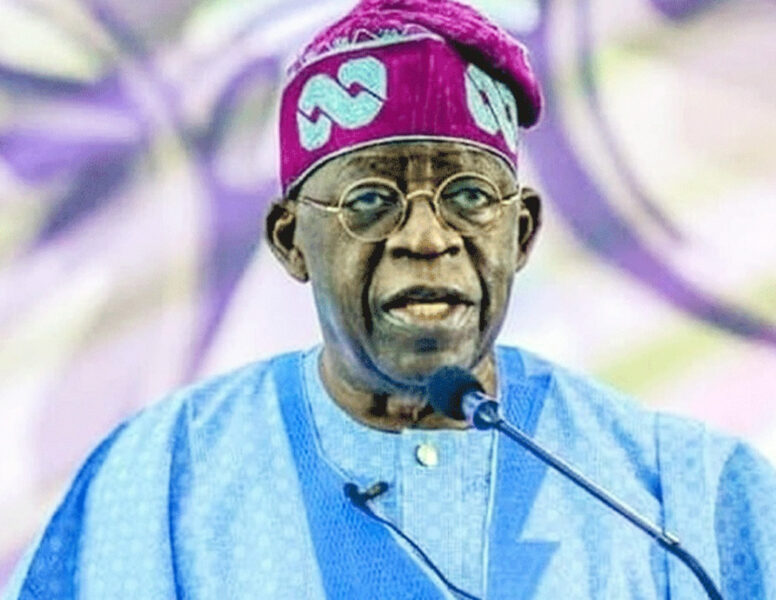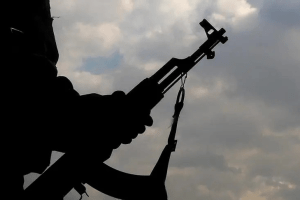5
Nigeria has ranked 120 out of 144 in the The World Justice Project (WJP) Rule of Law Index. WJP is the world’s leading source for original, independent rule of law data.
It deploys rigorous methodology draws on expert and household surveys to measure the rule of law in 143 countries and jurisdictions, covering 95% of the world’s population.
The Index relies on more than 215,000 household surveys and 4,100 legal practitioner and expert surveys to measure how the rule of law is experienced and perceived worldwide.
Published annually since 2009, the Index is used by governments, multilateral organisations, businesses, academia, media, and civil society organizations.
WJP, in the latest 2025 survey, finds that the global rule of law recession has accelerated again, with a stark 68% of countries declined in their rule of law in 2025, compared to 57% in the previous year.
However, Nigeria is among the minority of countries to see its rule of law score increase this year.
Nigeria’s overall rule of law score increased by less than 1% in this year’s Index. It ranks 120th out of 143 countries worldwide.
Regionally, Nigeria ranks 23rd out of 34 countries in Sub-Saharan Africa. The region’s top performer is Rwanda (ranked 39th out of 143 globally), followed by Namibia and Mauritius.
The three countries with the lowest scores in the region are Cameroon, the Democratic Republic of the Congo and Sudan (137th globally).
In the last year, 25 out of 34 countries declined in Sub-Saharan Africa. Of those 25 countries, 14 had also declined in the previous year.
Africa represents a significant bright spot, with four out of the top ten global improvers in the WJP Rule of Law Index originating from the region.
Among lower-middle income countries, Nigeria ranks 23rd out of 35.
Nigeria and global trends
An expansion of authoritarian trends is the primary force behind the rule of law recession, with deep declines in factors measuring Constraints on Government Powers, Open Government and Fundamental Rights.
The integrity of checks and balances has also been seriously weakened, including in Nigeria.
A characteristic of this accelerated rule of law recession is a shrinking civic space. Freedoms crucial for public discourse and government oversight—measured under the Open Government and Fundamental Rights factors—saw widespread erosion. Nigeria is among the over 70% of countries experiencing a shrinking of civic freedoms, which includes Freedom of opinion and expression — declined in 73% of countries, including Nigeria; Freedom of assembly and association — declined in 72% of countries, including Nigeria, and Civic participation — declined in 71% of countries, including Nigeria.
The Index shows that judiciaries are losing ground to executive overreach, with rising political interference across justice systems.
Indicators measuring whether the judiciary limits executive power and whether civil and criminal justice are free from improper government influence declined in 61%, 67%, and 62% of countries, respectively. This includes Nigeria.
More broadly, civil justice weakened in 68% of countries, but not in Nigeria. This decline reflects longer delays, less effective alternatives to court (such as mediation), and greater government interference.
Global rankings
Globally, the top-ranked country in the 2025 WJP Rule of Law Index is Denmark, followed by Norway, Finland, Sweden and New Zealand. The country with the lowest score is Venezuela, followed by Afghanistan, Cambodia, Haiti and Nicaragua.
Nigeria’s WJP Rule of Law Index rankings shows overall score global rank of 120/143, while overall regional rank is 23/34.
Factor score rankings: The factors influencing the ranking are classified under three groups —Global Rank; Regional Rank, and Income Rank
Nigerian ranking, according to WJP, was based on eight indices which were, however, considered under the three factors above. The eight indicators are Constraints on Government Powers; Absence of Corruption; Open Government; Fundamental Rights; Order and Security; Regulatory Enforcement; Civil Justice, and Criminal Justice.
For Constraints on Government Powers, Nigeria ranks 93/143 (for Global Ranking, 14/34 (for Regional Ranking and 13/35 (for Income Ranking).
For Absence of Corruption, Nigeria ranks 118/143 (for Global Ranking); 21/34 (for Regional Ranking) and 22/35 (for Income Ranking).
On Open Government, the country ranks 104/143 (for Global Ranking); 14/34 (for Regional Ranking) and 16/35 (for Income Ranking.
On Fundamental Rights, it is 117/143 (for Global Ranking); 23/34 (for Regional Ranking) and 22/35 (for Income Ranking).
For Order and Security, Nigeria ranks 142/143 (for Global Ranking), 34/34 (for Regional Ranking and 34/35 (for Income Ranking).
On Regulatory Enforcement, it is 122/143 for Global Ranking; 24/34 for Regional Ranking and 23/35 for Income Ranking.
The country also measured on Civil Justice, with Global Ranking at 104/143; Regional Ranking at 16/34, and Income Ranking at 16/35.
On Criminal Justice, it is 90/143 for Global Ranking, 14/34 for Regional Ranking and 14/35 for Income Ranking.






